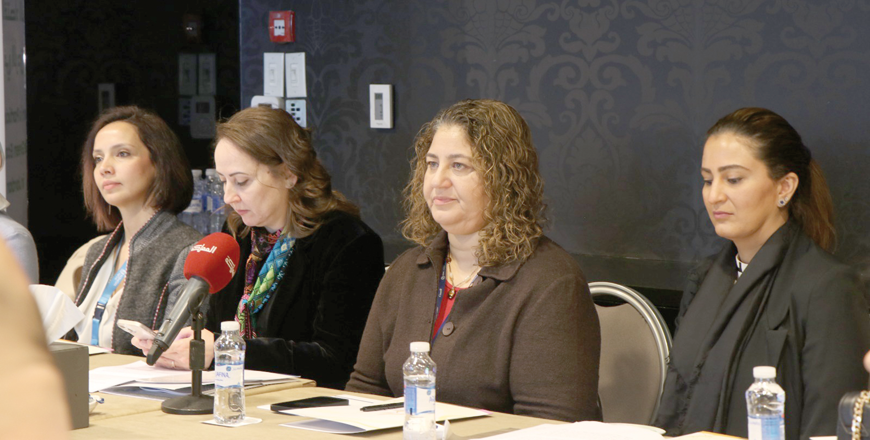AMMAN — Despite the rapid growth of Jordan’s green economy, women remain significantly underrepresented in sustainability-focused jobs, particularly in technical and leadership roles.
Structural barriers, restrictive social norms and a lack of gender-sensitive policies continue to limit their access to opportunities in this emerging sector, according to experts.
As the country transitions towards a more sustainable economic model, integrating women into green industries is not only a matter of social equity but also an economic imperative.
In a high-level discussion attended by government officials, industry leaders, civil society representatives and media, experts explored strategies to close the gender gap in Jordan’s green economy.
The session featured the presentation of a pioneering study, “Advancing Gender Inclusion in Jordan’s Green Economy: Towards an Eco-Feminist Future,” led by Founder of JoWomenomics and Chairperson of the Feminist Economy for Training and Development Mayyada Abu Jaber.
The research was conducted in cooperation with the International Development Research Centre (IDRC).
The study emphasised the urgent need for gender-responsive policies to ensure that women can equally benefit from the opportunities within Jordan’s sustainability-driven labour market.
While the green economy offers significant prospects for economic growth and environmental resilience, experts warn that excluding women from this sector risks exacerbating existing gender inequalities, as highlighted by JoWomenomics.
The discussion underscored the importance of swift policy action, workforce development programmes and industry incentives to foster a more inclusive and equitable economic future.
Jordan’s labour market is plagued by structural challenges, such as occupational segregation, which has confined women to administrative and lower-wage roles rather than technical or leadership positions, the study noted.
The study also showed that the absence of targeted policies and incentives has discouraged private-sector employers from prioritising gender diversity in green industries.
Drawing on international best practices, the research proposed the introduction of gender-based certification as a powerful tool to boost women’s participation in sustainability-focused sectors.
The study also called for immediate action to implement policy incentives, expand capacity-building programmes and raise awareness to shift societal perceptions about women’s roles in the workforce.
"By adopting these measures, Jordan can build a greener, more inclusive economy that aligns sustainability with gender and social justice."
Regional Director at IDRC Wissam Bayeh commended the study for highlighting gender disparities in Jordan’s green economy and reiterated the centre’s commitment to fostering inclusivity in environmental policymaking.
MP Dina Bashir, a member of the Advisory Council for Feminist Economy for Training and Development, emphasised the significance of the research, commending IDRC’s collaboration in developing gender-responsive policies.
During the discussion, Secretary-General of the Jordanian National Commission for Women Maha Ali expressed strong support for the study’s recommendations.
She also stressed the critical role of national institutions in driving gender-sensitive economic reforms and noted the disproportionate impact of climate change on women and girls in Jordan and the wider Arab region.
Ali also pointed out that environmental challenges such as water and food security risks pose significant socio-economic and health-related threats to women.
